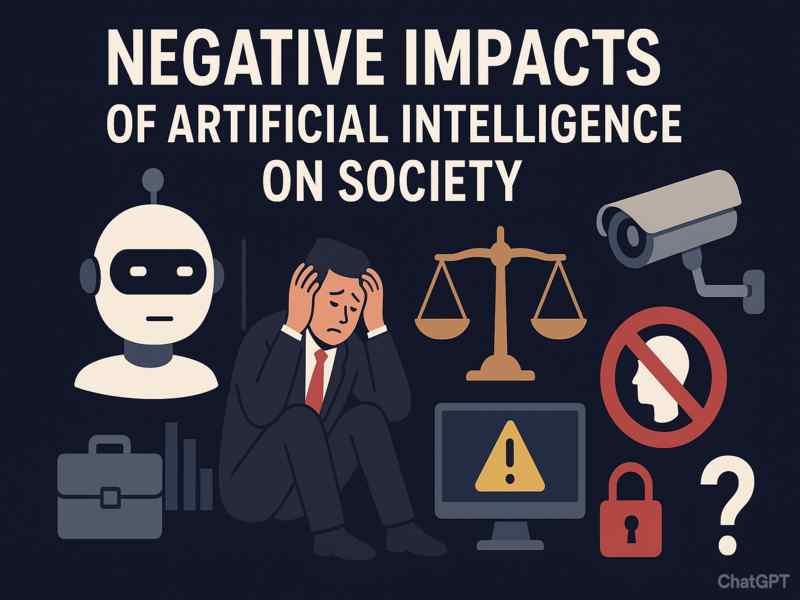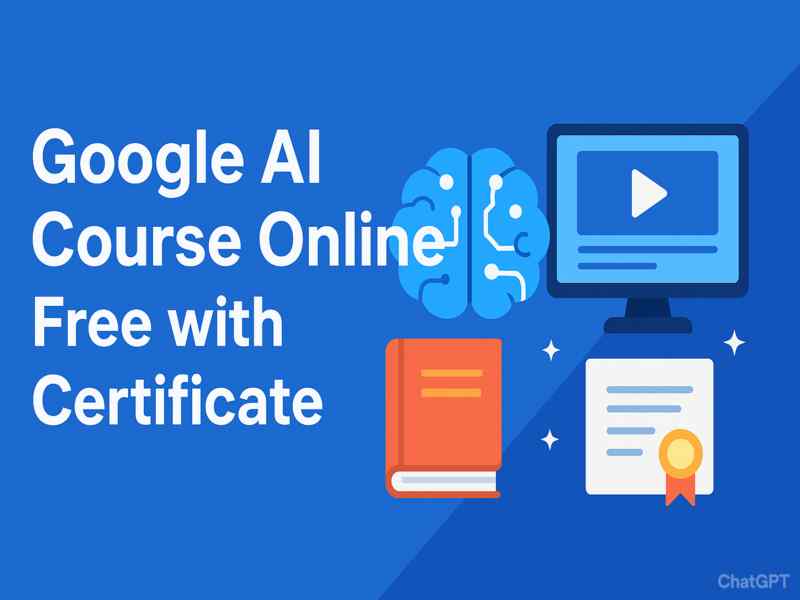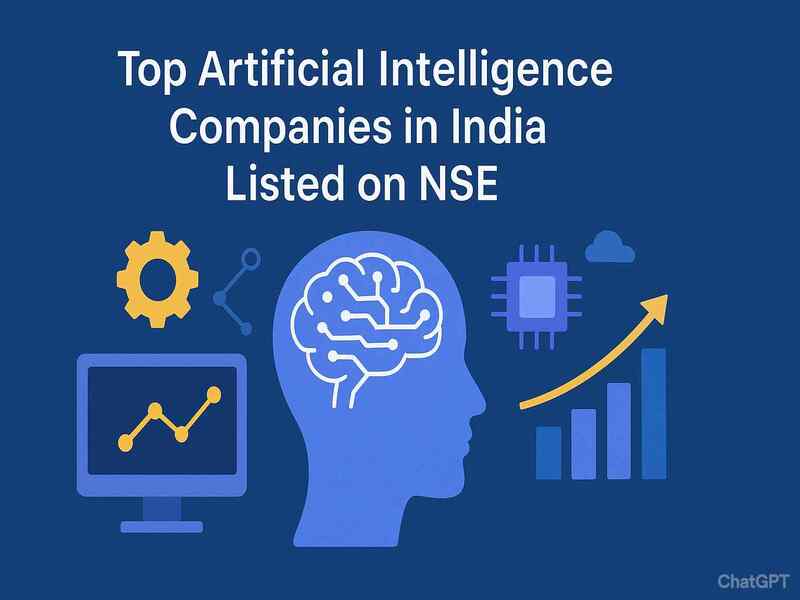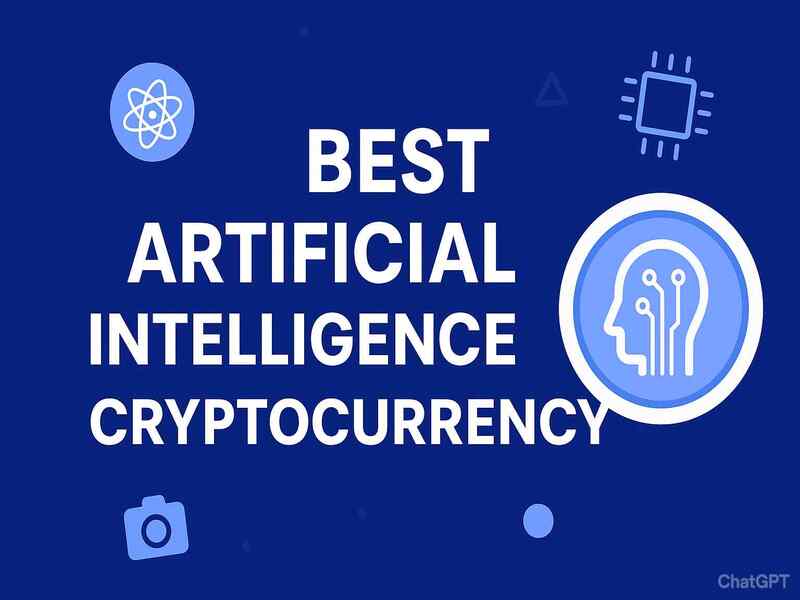Negative Impacts of Artificial Intelligence on Society
In today’s digital age, artificial intelligence has become one of the most revolutionary technologies shaping the future of humanity. From autonomous vehicles to personalized healthcare, AI is transforming the way we live and work. While the advantages of AI are undeniable, the negative impacts of artificial intelligence on society are equally important to discuss. Understanding these drawbacks is crucial to prepare for the ethical, social, and economic challenges that come with this technology.
Job Displacement and Unemployment
One of the most debated negative effects of AI is its potential to replace human jobs. Automation powered by AI has already taken over repetitive tasks in manufacturing, retail, and logistics. While this increases efficiency, it also leads to widespread job displacement.
For instance, self-checkout systems in supermarkets or chatbots in customer service reduce the need for human workers. Experts warn that millions of jobs in sectors such as driving, accounting, and even legal services could disappear within the next decade.
Table 1: Jobs at Risk Due to AI Automation
| Sector | Human Jobs Replaced by AI | Estimated Risk % by 2030 |
|---|---|---|
| Manufacturing | Assembly line workers | 60% |
| Retail | Cashiers, sales clerks | 50% |
| Transportation | Drivers | 70% |
| Customer Service | Call center agents | 65% |
The challenge is not just the loss of jobs but also the widening gap between those who can adapt to artificial intelligence skills and those who cannot.
Ethical Concerns and Bias
Another serious negative impact of AI is the ethical dilemma it creates. Algorithms are designed by humans, and thus they may inherit human biases. In recruitment processes, for example, some AI systems have been found to favor certain genders or ethnicities due to biased data sets.
This creates a risk of reinforcing discrimination in society. Moreover, artificial intelligence ethics becomes a central issue when AI is used in sensitive areas such as law enforcement or surveillance. Wrongful arrests or misidentification caused by facial recognition software highlight the dangers of relying too much on flawed algorithms.
Privacy and Surveillance
AI technologies such as facial recognition, big data analytics, and predictive policing raise major concerns about privacy. Governments and corporations are increasingly using AI-driven systems to monitor citizens’ behavior, online activities, and even emotions.
While these tools can enhance security, they also threaten personal freedom. People often do not realize that their digital footprint is constantly being collected and analyzed. This opens the door to mass surveillance, reducing trust in institutions.
In fact, critics argue that such practices are paving the way for a “surveillance society,” where individuals lose control over their personal information. For more insights on privacy challenges, you can visit this source
Impact on Mental Health
With the spread of AI-powered social media algorithms, another challenge emerges: mental health. Platforms like Instagram, TikTok, and Facebook use AI to maximize user engagement. However, these algorithms often promote addictive behavior, expose users to unrealistic standards, and can lead to anxiety, depression, and loneliness.
Studies show that constant comparison on social platforms driven by AI-based content recommendations significantly impacts self-esteem, especially among teenagers. While social networks claim to connect people, in reality, they sometimes deepen the sense of isolation.
Economic Inequality
AI has the potential to create enormous wealth, but the distribution of that wealth is highly uneven. Large corporations and wealthy nations are the main beneficiaries of advanced artificial intelligence technologies. Meanwhile, developing countries and low-income workers struggle to keep up with the rapid pace of change.
This imbalance intensifies global economic inequality. The digital divide widens as small businesses cannot compete with tech giants that dominate AI research and implementation. Without proper regulation, AI may further concentrate power in the hands of a few corporations.
Security Threats and Cybercrime
The negative impacts of artificial intelligence on society also extend to security. Cybercriminals are increasingly using AI tools to launch more sophisticated attacks. For example, AI-generated deepfakes can be used to spread misinformation, blackmail individuals, or manipulate elections.
AI-driven hacking tools can automatically identify vulnerabilities in computer systems, making them harder to defend against. This raises the stakes for cybersecurity experts, who must develop new strategies to counter AI-powered threats.
Dependency and Loss of Human Skills
As societies integrate AI into daily life, there is a growing concern about over-reliance. From navigation apps to automated decision-making systems, people are gradually losing critical problem-solving skills.
For example, relying solely on AI in medical diagnosis could lead to situations where doctors lose their diagnostic expertise. Similarly, in education, if AI tools completely replace teachers, students may miss out on the human interaction and empathy that is essential for learning.
Environmental Impact
Though often overlooked, AI also has an environmental cost. Training advanced AI models requires immense computational power, which in turn consumes large amounts of electricity. Data centers running these operations significantly contribute to carbon emissions.
As the demand for AI applications grows, so does their ecological footprint. Unless renewable energy sources are adopted, the environmental negative effects of artificial intelligence will become more pronounced in the coming years.
Regulation and Governance Challenges
Finally, one of the major challenges of artificial intelligence is the lack of comprehensive regulations. Governments worldwide are struggling to create legal frameworks that balance innovation with safety.
Without clear guidelines, AI companies may prioritize profit over ethics, leading to misuse. From self-driving cars causing accidents to autonomous weapons in military use, the dangers of unregulated AI are immense. Establishing international standards and ethical codes is essential to prevent long-term harm.
Conclusion
While artificial intelligence offers countless opportunities, it is impossible to ignore the negative impacts of AI on society. Job losses, bias, privacy violations, mental health issues, inequality, cybercrime, environmental costs, and lack of regulation are all pressing concerns.
Society must address these challenges proactively through education, regulation, and ethical frameworks. Only by balancing innovation with responsibility can we harness the true potential of AI without compromising our future.




